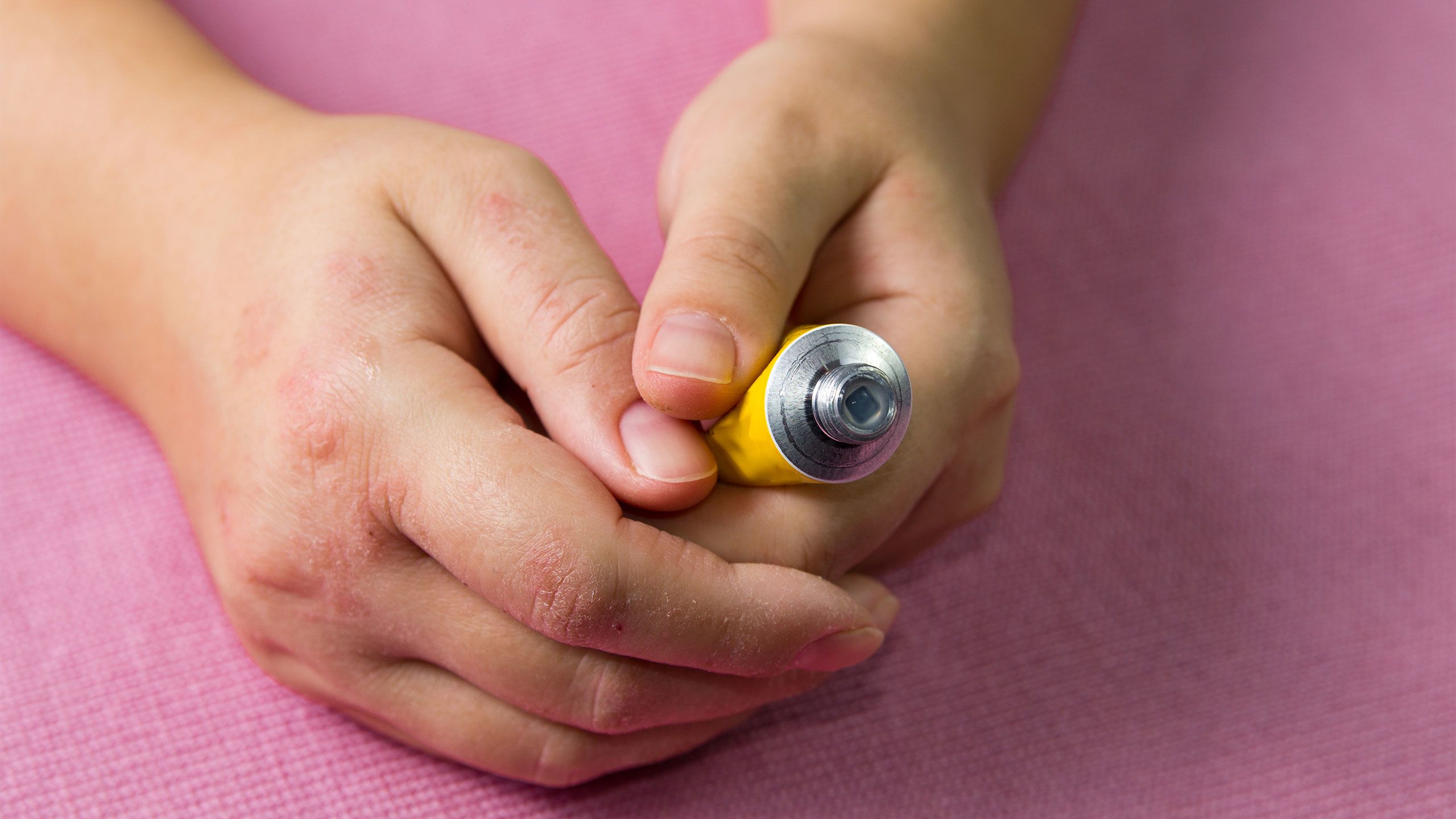Atopic dermatitis is a common condition that affects millions of people. Most people with atopic dermatitis first experience symptoms as children, typically before the age of five. If your child has atopic dermatitis, the following list of topics, questions and tips may be helpful when speaking with the pediatrician during your next appointment.
Preparation
Let the pediatrician know about any changes in symptoms since the last appointment. Between appointments, keep a diary to track symptoms and potential triggers day to day. This information is very useful when trying to identify patterns and changes in symptoms. In addition to keeping track of symptoms, make a list of over-the-counter products that your child uses (soaps, shampoos, moisturizers and children’s vitamins, for example) as well as at-home remedies (such as wet wraps or colloidal oatmeal) and bring this to the appointment.
Honesty
Always be honest with your child’s pediatrician. If you haven’t been following the treatment plan, let them know, and let them know the reasons—for example, if you are concerned about side effects, if the treatment schedule is difficult to adhere to, or if the treatment is too expensive. Don’t feel like you are the only person who struggles with this—it’s estimated that more than half of atopic dermatitis patients do not follow the treatment plan as prescribed by their healthcare providers. Remember, the pediatrician is there to work with you and your child, and this includes addressing your concerns and helping you overcome these challenges.
Symptoms
Have the symptoms been getting better, getting worse, staying the same? Have symptoms flared since your last appointment? Remember that in addition to the visible symptoms of the condition—the patches of dry skin—it is also important to discuss the overall impact atopic dermatitis is having on your lives. Is it becoming more of a psychological and emotional burden for your child and your family? Is it having a negative impact on school, activities and socializing? Does it disrupt your child’s sleep? Is it contributing to feelings of isolation or anxiety? These are all questions to consider, and discuss with your child’s pediatrician.
Treatment
Your child’s current treatment for atopic dermatitis is an important part of the conversation. Bring up any questions or concerns you have about the treatment. These can include questions about how the treatment works, how long it should take before symptoms improve, possible side effects and possible interactions with other medications. As mentioned above, if you’ve been having a difficult time adhering to a treatment plan, be honest, and work with the pediatrician to come up with a solution. Also, it is just as important to recognize and acknowledge when a treatment is working well.
Other conditions
Environmental allergies (like hay fever or dust mite allergies), food allergies and asthma are more common among people with atopic dermatitis. If you child is diagnosed or has symptoms of another health condition, this should also be a part of the conversation with the pediatrician. Remember, if a food allergy is suspected, it will need to be addressed under the careful guidance of a healthcare provider—eliminating foods from a child’s diet without proper guidance can result in nutritional deficiencies.





